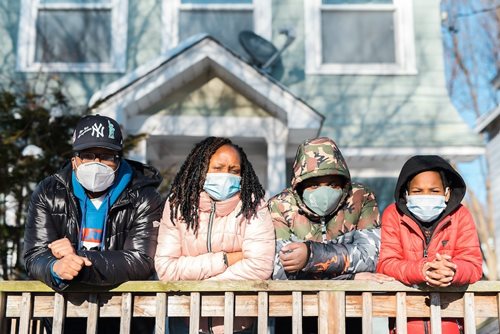Onboarding new staff members is a critical business process made even more challenging during a pandemic. When faced with this situation, Windham & Windsor Housing Trust (WWHT), a community land trust in Brattleboro, Vermont, chose NeighborWorks America online training to provide their new hires with industry updates and resources to help them succeed.
In 2019, Gloria Ortiz-Fisher, executive director of Westside Housing, was considering new ways to help clients. That's when she learned about a program helping residents establish credit by formally reporting on something they already did each month: Pay rent.
When a crisis strikes, NeighborWorks network organizations have tools to help. During the pandemic, one of the most visible tools was financial counseling, reports Michael Rayder, associate director of development with Maine's Avesta Housing. Individuals in Avesta's apartment rental homes lost jobs, hours and wages. "They needed to re-evaluate how they managed their budgets," Rayder says. "Financial capability was the way for us to provide services for people who were suddenly in crisis mode."
Middle neighborhoods – those neighborhoods caught between growth and decline – were first developed to provide modestly priced homes to the growing middle class. "Middle neighborhoods provided families with the opportunity to own a home, build community and realize the American Dream," explains Paul Singh, NeighborWorks America's vice president for community initiatives. But many middle neighborhoods are facing serious challenges. Housing stock is aging.
One of the most effective ways NeighborWorks America's financial counselors help clients at NeighborWorks network organizations is by playing matchmaker. They identify the programs that can best lead their clients toward financial stability and independence. Programs like rent reporting to build credit and incentivized savings can make a real difference, says Molly Barackman-Eder, director of financial capability at NeighborWorks America. Those programs can be found throughout the NeighborWorks network.
On Track in Vermont
Prestamos CDFI, a division of NeighborWorks network nonprofit Chicanos Por La Causa, has funded billions of dollars in Paycheck Protection Program (PPP) loans during the pandemic, with more than three fourths of those loans going to minority-owned businesses. By the end of June, the Community Development Financial Institution funded $7.6 billion in loans, supporting hairstylists, artists, custodians and more.
Preem Cabey had wanted a house for years. But when she found the perfect home, a "fixer-upper" available through the Albany County Land Bank, she didn’t qualify for a loan that would cover the repairs. "I wasn’t working enough hours," says Cabey, who had been a director of a recreational facility while working as an artist and community advocate.
Symphony Malveaux, community relations coordinator for Louisiana's Mid City Redevelopment Alliance, had been reading up on home scams as she prepared to bring awareness to her community through NeighborWorks America's Stop Home Scams initiative. Then she realized she'd nearly fallen victim to a scam herself.

